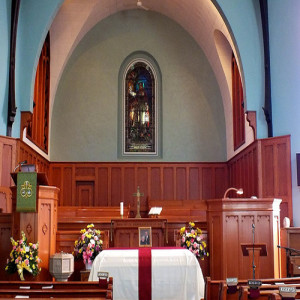Funeral Culture: Ancient Egypt vs. Christianity
 Although Ancient Egypt is a thousand years apart from the Christian era, an astute historian can draw uncanny similarities between two civilizations. There are key cultural aspects that seem too familiar between Ancient Egyptians and Christians. Examples include the power in state affairs, the divine right of pharaohs and kings to rule their subjects, and how clerics are regarded as the sole authority in academics and sciences. One may be surprised that Ancient Egyptians and Christians are not so different in their attitude and practice of treating their dead respectably. Here are the following examples:
Although Ancient Egypt is a thousand years apart from the Christian era, an astute historian can draw uncanny similarities between two civilizations. There are key cultural aspects that seem too familiar between Ancient Egyptians and Christians. Examples include the power in state affairs, the divine right of pharaohs and kings to rule their subjects, and how clerics are regarded as the sole authority in academics and sciences. One may be surprised that Ancient Egyptians and Christians are not so different in their attitude and practice of treating their dead respectably. Here are the following examples:
Soul, afterlife and resurrection
Both cultures share the same belief of these three metaphysical ideas. Ancient Egyptians believe every human being has five souls and each must find its way to reunite together in the afterlife. In Christianity, souls have to atone for all the ills they have done and left unlamented in the afterlife called purgatory. Interestingly, both cultures also share the common idea of resurrection. Ancient Egyptians entombed their nobles and royalty hoping that the pantheons of the universe will resurrect them as long as their vital organs are stored intact within canopic jars. Christians believe in the bodily resurrection as pronounced in the Catholic Apostles Creed provided that they keep their souls pure and sins atoned for.
Coffins and embalming
Ancient Egyptians and Christians have both of these aspects in their respective funeral services. In fact, these two heritages have the same form of caskets engraved with holy symbols (Christian Cross and Egyptian Ankh) to ward off malicious supernatural elements. Mummification was considered the earliest form of preserving dead bodies. What is most surprising is that Coptic mummification and Christian embalming works with the same exact principle in mind – allowing the beloved departed to have a dignified memorial service.
Outcasts are denied burial rites
Just like in Ancient Egypt, proper funerals are only afforded to the privileged or deserving. An unholy isolated graveyard is reserved for undesirable individuals that clerical authorities disapprove. But that’s where the similarities end. In Ancient Egypt, denial of burial rites is a state punishment, particularly for heinous crimes like grave-robbing and vandalism in tombs. In Medieval Christendom, deceased individuals are denied proper memorial service if they have trespassed against religious dogma. Priests have the authority to brand anyone a heretic and that constitutes unsanctified interment.


